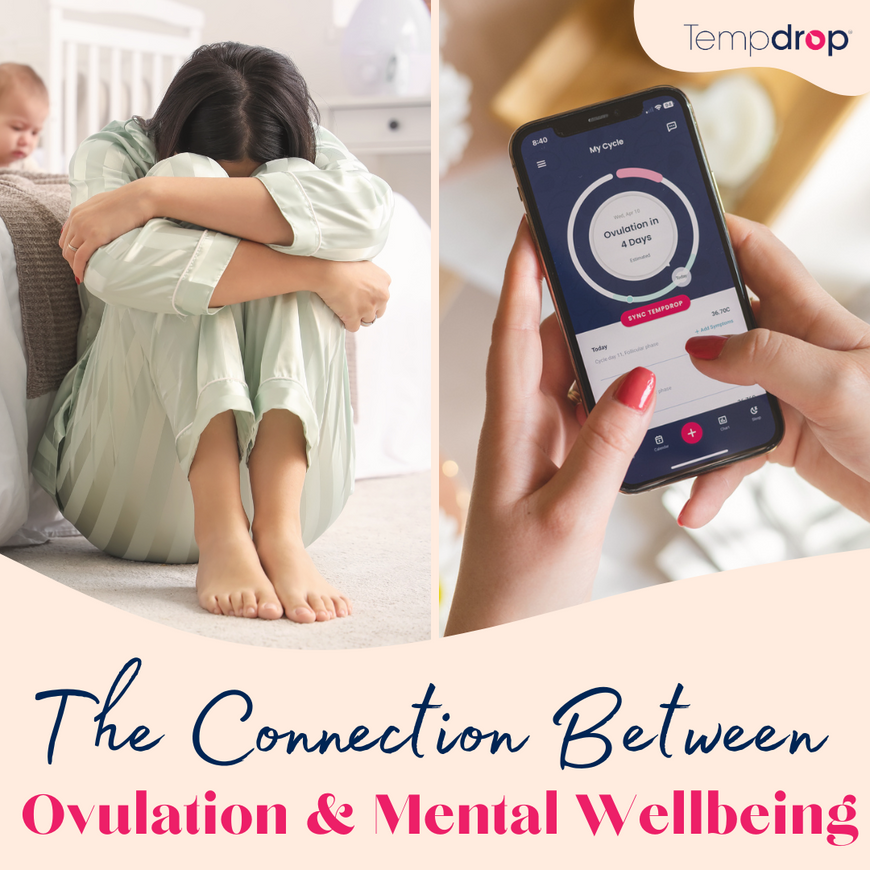For many women, the only time we give ovulation a second thought is when we are trying to conceive – but did you know there is so much more to ovulation than meets the eye? It's an extraordinary process that affects our whole body!
When you ovulate, there is a follicle left behind in the ovary. This follicle undergoes a transformation and starts producing a hormone called progesterone.
Progesterone isn't just essential to supporting the endometrium lining and healthy pregnancy – it's also a vital component to almost all other hormonal activity in the female body, including mental health. So what exactly does progesterone help you with?
1. Sleep Quality
If you're already charting your cycle using the Fertility Awareness Method, you may have noticed that you're more inclined to sleep better during your luteal phase (the time in your cycle from ovulation to your next period). Progesterone facilitates sleep while improving its quality. When it comes to dealing with anxiety or depression, a good night's sleep is a wonderful tool in your toolbox. Low progesterone levels (or lack of it all together if you're not ovulating) have the opposite effect, causing restlessness and trouble sleeping.

2. Adrenaline Dominance
Adrenaline is the hormone used in a "fight or flight" situation - when you're anxious or stressed. Adrenaline is valuable for getting us through difficult times, but its use comes at a price. If you're suffering from prolonged stress or an endocrine imbalance, your body may consistently overproduce adrenaline. This can lead to symptoms associated with ADHD, anger, depression, PTSD, bipolar disease, addictions, and more.
Research has identified progesterone as a natural balancing hormone for excess adrenaline. Studies have also revealed that progesterone may have a role to play in myelin sheath repair and maintenance, which protect the body's central nervous system. Healthy ovulation during each cycle can be vital in reducing the effects and symptoms of these conditions*.
3. Depression and Anxiety
Estrogen is the other dominant hormone produced by women throughout the menstrual cycle. It has a wonderful effect on your mood and libido during the preovulatory phase, but there can be too much of a good thing!
Left unchecked for too long, estrogen can have the opposite reaction, causing depression and anxiety. You may have heard of this referred to as "estrogen dominance" and may even have experienced it yourself at some point. At the end of the cycle, when your progesterone levels rise, they help counterbalance estrogen and offer a calming, antidepressant function.
How You Can Take Charge Of Your Mental Well-being
Tracking your fertility biomarkers - including basal body temperature - will better equip you to understand where you in your menstrual cycle on any given day and help you to analyze your hormonal health. When you track your cycles, you learn to recognize where you are in your cycle, and know which hormones are dominant. This knowledge will help you to recognize the reasons behind some of the symptoms you experience throughout your cycle. This in turn provides you with valuable information to take to your providers if you have any concerns!

Women's health is getting more research attention than ever before and the connection between ovulation and overall well-being is finally becoming more apparent. As this information flows out to the wider community, women everywhere can take more control of their bodies; at the same time, they will also experience the rewards of understanding their bodies even more intimately.
Charting your cycle is the first step to a new and empowered you.
*Women who have been diagnosed with these conditions may need to ask their doctor about progesterone supplementation; seeking out the advice of a medical professional is recommended.


